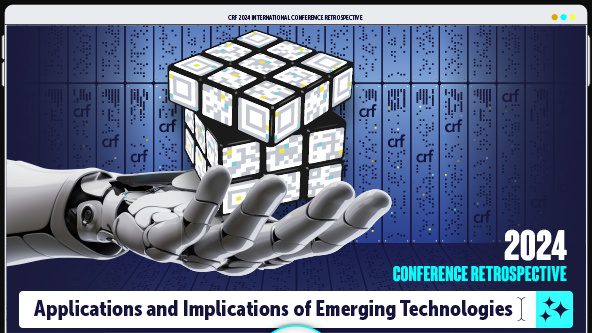Talent, Leadership and Learning
TLL Summary Notes: 2024 Mercer Talent Trends
On 7th March CRF and Mercer hosted an online TLL community event to share Mercer’s 2024 Talent Trends. During the session Kate Bravery, Mercer’s Global Advisory Solutions and Insights Leader, presented key findings from Mercer’s latest Global Talent Trends report, informed by over 12,000 voices around the world (including 845 c-suite executives, 1,920 HR leaders, 9,449 employees and 84 investors). These notes summarise the key takeaways from the event.
- Executives are excited about growth and transformation in 2024, with the world on the cusp of a revolution driven by collaboration between humans and machines. However, near-term risks dominate executives’ three-year plans. The biggest challenge for 2024 will be increasing talent agility and driving more sustainable people practices.
- Work is not meeting the needs of the workforce; 82% of people are at risk of burnout this year and 42% of people in the UK say that work is fundamentally broken. Employees are also increasingly concerned about pay fairness, which after job security, has become the second most important factor for staying in a role.
- There is now a disconnect between what executives and HR are prioritising. HR’s 2024 priorities are to enhance the employee experience, improve Strategic Workforce Planning and redesign work for AI and automation. On the other hand, executives’ top priorities are to improve sustainability accountability, metrics and reporting, invest in AI tools and adoption, and combat increased health and benefit costs.
- Mercer recommends that organisations build ‘Workforce 2.0’ through focusing on four areas: driving human-centric productivity, anchoring to trust and equity, boosting the corporate immune system and cultivating a digital-first culture.
- Productivity is viewed as the no.1 driver of transformation, with 2024 likely to be the year that AI hype translates into real productivity gains (e.g. one in two executives believe AI will fundamentally change their business model and 65% of HR believe AI could decrease current workloads). First, organisations will need to overcome more basic factors which are currently depleting productivity (particularly too much busy work, not enough thinking time and ineffective organisational structures). They also need to decide who benefits from these productivity gains – will they be flowed to the bottom line or used to redesign work as more attractive?
- Organisations should cultivate a digital-first culture, focusing on how humans and technology can come together to drive new value. However, the people side of transformation is much harder to get right than the technological side, with the onus on HR to make sure that approaches are human-centric. HR will need to role model digital-first values and habits, though the UK has the lowest belief that focusing on creating a digital first culture is a good use of HR’s time.
- Executives are more aware of the scale of the reskilling challenge and organisations are focusing more on building skills internally. In particular, HR professionals find rewarding skills acquisition the most helpful intervention in closing skills gaps. However, 1 in 5 still report challenges in scaling reskilling or upskilling.
- Trust is the greatest predictor of employee success, yet has declined 10-15 percentage points since 2022. The top three corporate behaviours which erode trust are broken promises, frequent organisational changes and unfair or unequal treatment.
- Over half of executives say they have pulled back on their ESG commitments, following customer or societal pushback in 2023. However, employees expect their employer to uphold sustainability standards, with pride in the brand they work for now a top reason for why people thrive at work.
- The workforce continues to become more diverse. From a leadership perspective, delivering on inclusion will become more challenging as hybrid working becomes more widespread. Ensuring workplaces are age inclusive is another key challenge – 76% of employees have witnessed age discrimination in the last year and older generations have become less confident that their needs are being met.
Click here to read Mercer’s full 2024 Global Talent Trends report.
Further Resources
CRF. 2023. HRD Briefing 2024: Navigating Change in an Uncertain World
CRF. 2024. Revisiting the New Working Environment
MEMBER LOGIN TO ACCESS ALL CRF CONTENT



